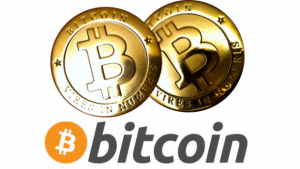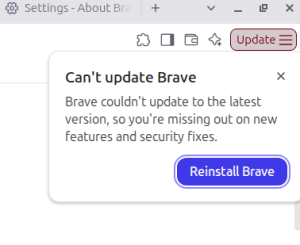Eight Blockchain Apps That The Space Age Needs
 Okay, let’s put the clickbait title aside for a moment and look at why I think it’s no coincidence that Bitcoin emerged right when people were nearly ready to get serious about colonizing space. No, I don’t believe that Satoshi Nakamoto was some kind of space alien. However, just like the computer really only took hold right when society was really ready for it even though the basic concept of a machine that could handle digital calculations had been around at least since 1850, Bitcoin could be considered the first true decentralized digital currency even though there had been previous attempts to create a digital currency that never really caught on or never did figure out some of the technical kinks involved.
Okay, let’s put the clickbait title aside for a moment and look at why I think it’s no coincidence that Bitcoin emerged right when people were nearly ready to get serious about colonizing space. No, I don’t believe that Satoshi Nakamoto was some kind of space alien. However, just like the computer really only took hold right when society was really ready for it even though the basic concept of a machine that could handle digital calculations had been around at least since 1850, Bitcoin could be considered the first true decentralized digital currency even though there had been previous attempts to create a digital currency that never really caught on or never did figure out some of the technical kinks involved.
2015 could be considered the first year of Blockchain dominance, though. It’s a decentralized ledger that is, quite frankly, pretty stupid. It doesn’t know whether it’s recording currency transactions, a smart contract or the registration of legal documents. If it involves a transaction of some sort, even if that transaction is just the transmission of bits over a computer network, the Blockchain can handle it. There’s even talk of making things more efficient by moving some functions away from the Blockchain “application layer” onto other layers designed to handle different networking functions and that’s not a bad idea when you’re taking the long view.
But the important thing for those of us who are interested in getting serious about expanding into space is that the Blockchain can handle transactions without the exchange of any physical tokens. This is useful for future transactions that is likely to involve entities that are going to be separated by millions of miles rather than mere thousands and may rely on interplanetary traders who won’t want to transport hard cash when they could use the space for valuable goods. The benefits of including the Blockchain in space efforts is beginning to be realized by fans of both, as evidenced by the existence of the Bitnation Space Agency, which is currently facing a few delays since our interview but is in the process of building hardware for its Stratoshi-1 mission. Let’s take a look at the potential Blockchain apps that could be useful for future space colonies.
- Colonial charters. Historically, most colonies started out with a charter that stated the purpose of the colony and may even outline a rudimentary government structure. This can provide guidance to the colonists so that they know what to expect when joining the colony. With the Blockchain, it would be enormously difficult to tamper with a charter in a way that wouldn’t be easily detected and dealt with.
- Currency, obviously. While some people may talk about a “resource-based economy,” some form of currency would inevitably develop to make trading goods and services more efficient when the colony grows large enough to have a complex economic system or wishes to trade with neighboring colonies.
- Smart contracts. So, how fast do you honestly think a judicial system would form in a space colony? Until that happens, the colonists would need some form of contract that would pretty much be self-enforcing. Basically, if you can’t establish that you provided X, there’s no way that you’re going to get Y amount of digital assets that have been attached to the contract. Smart contracts already exist.
- Notarized documents. Elon Musk put it best: “I would like to die on Mars. Just not on impact.” When a colonist dies after a good run with the space colony, what is going to happen to his belongings? Would there be a way to modify a smart contract in a way that would automatically distribute his or her digital assets according to conditions set in the modified contract when it detects that the colonist no longer has a heartbeat? While the colonists are still alive, what happens if there is a dispute about who owns which homestead? Appropriately recorded notarized documents on the Blockchain can help to resolve these issues.
- Monitoring critical systems. When you’re a technician on a space colony, how often are you going to be able to stop and check readouts? A pretty common example is that centralized monitoring station where two or three people might be checking the status of people in the emergency room but they’re getting bored and they might miss a trend in vital stats that indicates that a patient is going south but hasn’t gotten bad enough to trigger an alarm yet. The right kind of Blockchain application should be able to keep up with system status, track trends that might indicate that a component is about to give out, and issue an alert so the technician can solve the problem before it becomes critical.
- Voting. This is going to be one of the most popular ways to make decisions in a small- to medium-sized space colony. When you put aside accusations that attempts to fight voter fraud are somehow “racist,” you’ll start to realize that the Blockchain is actually the most fair way to make sure that each qualified voter gets the vote that he or she is entitled to without anybody being able to steal that vote. This can be handled by automatically issuing a certain amount of tokens to each voter’s device and then he or she can vote on each issue by signing in, maybe with biometrics, and casting those tokens.
- Inventory tracking. When do you want to know when you should 3D-print more parts? You would preferably do it before you run out of a critical part for your colony’s life support system, right? A Blockchain inventory application, combined with RFID technology, would make it easy to know who checked out parts, what they’re doing with those parts, and issue alerts when you need to 3D-print more of them.
- Smart ID Functions. Plastic ID cards should be considered obsolete in a world where we have biometrics and RFID will become a serious thing in the near future. The tablet you use to store your currency wallets, vote and receive notifications from relevant Blockchain applications can also serve as your identification in cases where you need to do things like check out a part with the inventory tracking software mentioned above. Even considering the inevitable, “WTH would you need to establish your identity on a smallish space colony?” there may be cases where somebody goes completely nutso and decides to sabotage the colony somehow. That means keeping close track of any odd behavior like checking out parts he shouldn’t need or getting into places where he shouldn’t be, and that means having some way to identify colonists.
The Blockchain could seem pretty inefficient for handling all this and, in fact, you would have a problem if you were trying to load all of these functions onto a single Blockchain. However, there are some rather efficient algorithms that could handle these functions within a colony without eating up all of its processing power and Blockchain experts are working on ways to create parallel chains called “sidechains” that can exchange data with one another on an equal footing. However, when you’re already in a stressful situation like keeping your space colony up and running, you don’t need the extra aggravation of your databases going all wonky because a server gave out or somebody is tampering in an attempt to cover their mistakes. That means having a database system that can give you reliable data every time you need it.











